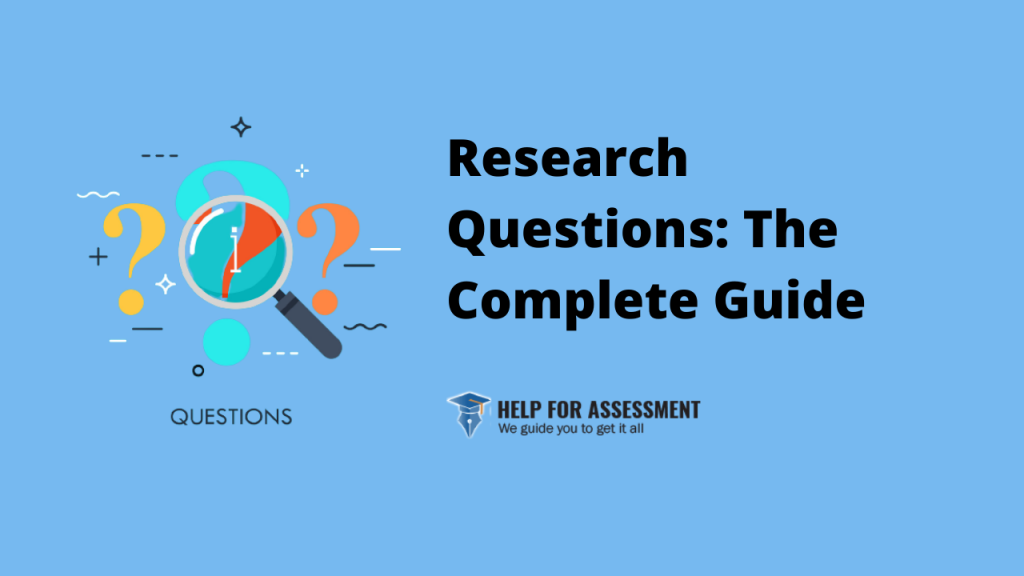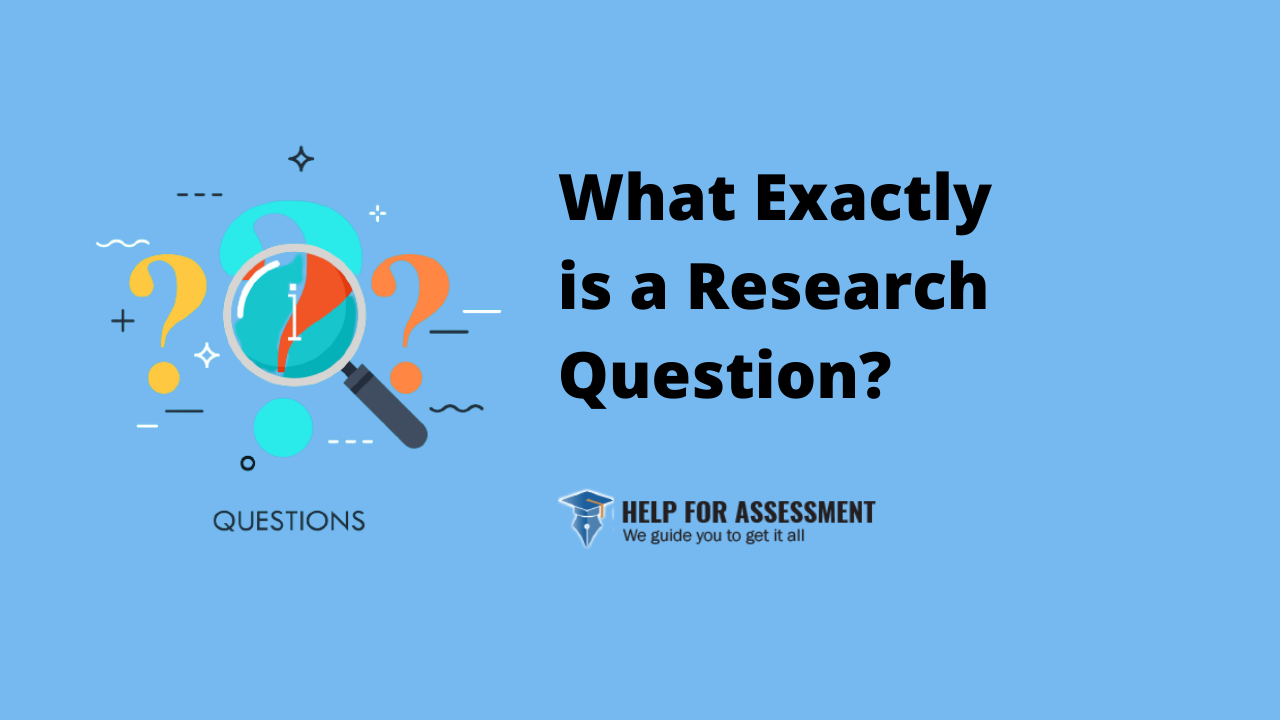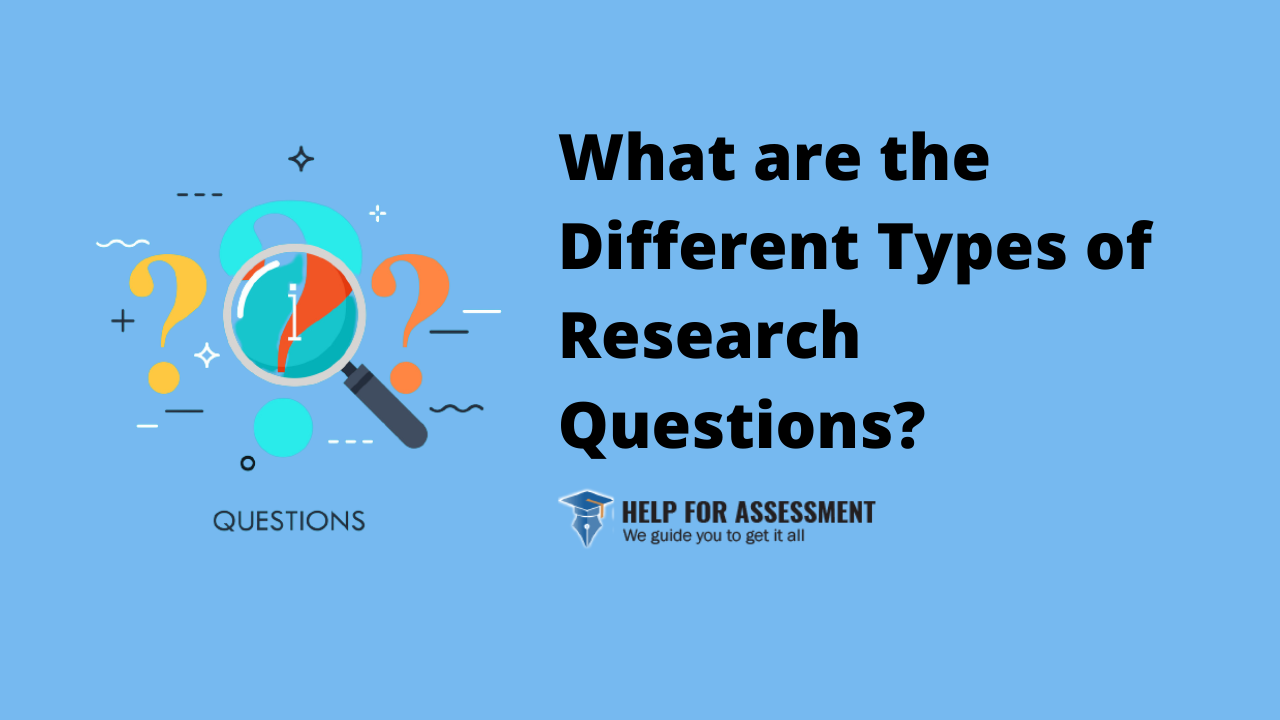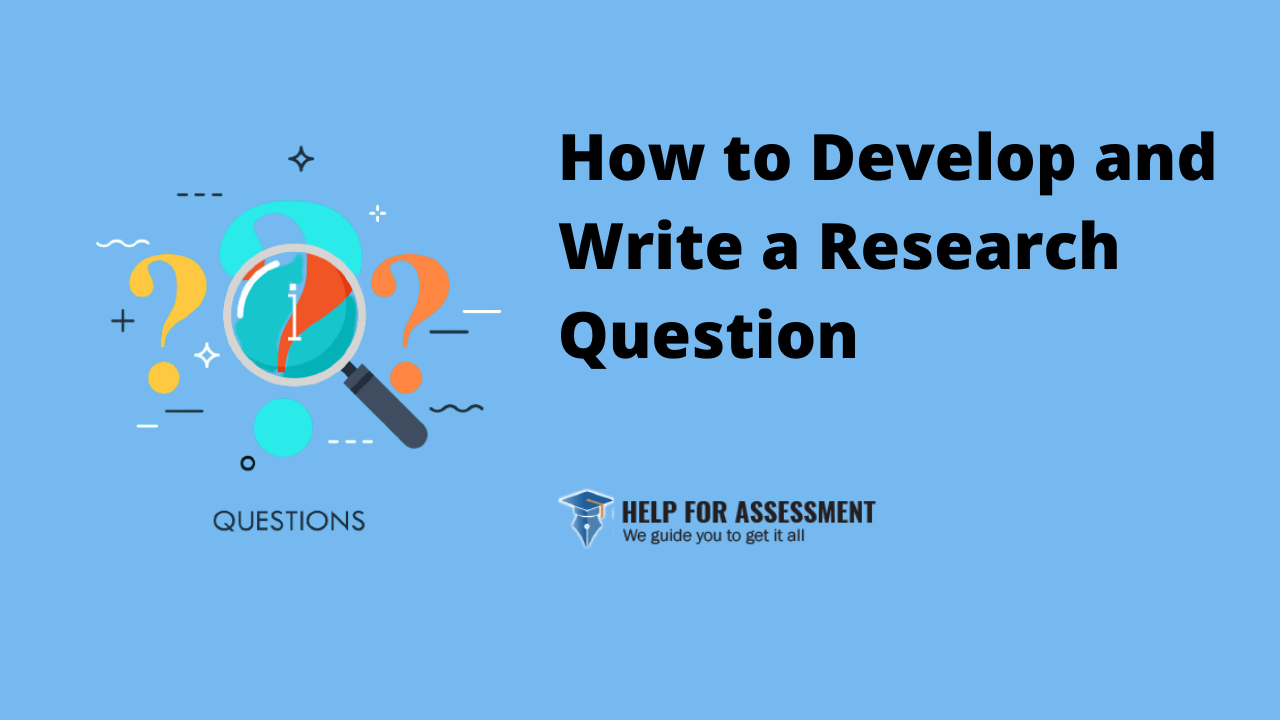If you’re looking for the complete guide to research questions, this article is for you. In this in-depth post, you’ll learn:
- 1The right way to develop research questions for your studies
- 2What research questions are
- 3The elements of a good research question
Plus, we’ll provide some example of research questions in the last section of this guide to make everything clear.
Keep in mind that coming up with relevant research questions is the first step to writing a killer thesis, a dissertation, or research paper.
The question you come up with should not only provide a path for the research and writing process, but also help you to about being generic and focus on an arguable, specific concept instead.
What are Research Questions?
A research question is the main focus of a research project. By definition, this is the question around which you’ll center your research writing.
Good research question should be:
- 1Clear and easy to understand without the need for additional explanation
- 2Relevant to your field of study
- 3Arguable and open for debate, not acceptable as fast
- 4Focused enough so you can answer it thoroughly and concisely in fewest words possible
- 5Feasible enough to answer with practical constraint and timeframe
- 6Complex that it requires synthesizing, analysis of ideas, and sources and citation before arrive to an answer
A research question may be around an issue that you’re either curious or passionate about. In some cases, your instructor may give you a topic for your research project.
Either way, you’ll have to develop relevant research questions and pick the most relevant one for the project.
Types of Research Questions
There are two main type of research questions. These are qualitative and quantitative research questions. Each of the type has other subtypes, and we discuss them below:
Qualitative Research Questions
This type of research question focuses on exploring meaning and experience.
It focuses on a larger group and seeks to understand a concept or experiment. It's open ended in structure as it focuses more on the experiences of more than one person.
Formulate questions from data collected from case studies, focus groups, and surveys.
Type of Qualitative Research Questions
There are three types of qualitative research questions and they are as follows:
Exploratory Questions
The type of question you ask because you want to understand a topic.
These kind of questions don’t require a preconceived notions or bias. You ask because you want to understand a topic.
Examples:
Interpretative Questions
We come up with these kind of questions because we want to learn and understand how a group of people view and interpret shared experiences.
Plus, the question focuses on how they attribute those experiences to different phenomena in life.
When you ask this kind of question, you’re mainly interested in understanding the feedback on a group’s behavior.
Example
Predictive Questions
Predictive questions are the kind you ask if you’re concerned about the future outcome of an event or an action.
As a researcher, you’ll use the past information to predict reaction to an event.
Example
Quantitative Research Questions
Here, researchers use empirical evidence and measurable data to give an explanation for an occurrence.
This one is common in historical, statistical, marketing and psychical research studies.
Often used to confirm or disapprove a hypothesis through comparisons, descriptions, and relationships.
Types of Quantitative Research Questions
Relationship-Based Questions
Relationship based questions are the ones you ask if you want to know the effect of two or more variables on one of more groups.
From a statistics viewpoint, relationship-based questions fall in the experimental research design where we measure the cause and effect between two or more variables.
It’s different in dissertation, especially at the undergraduate and master’s level, as the questions are often based on quasi-experimental and relationship-based research design. In this case, it’s impossible to account for casual relationship between variables. There are only trends and associations.
We start relationship-based research questions with the phrase “what is the relationship?” followed by the terms “between or amongst”. Then we list an independent and a dependent variable.
Examples:
Descriptive Questions
If you want to know why, how, when, or where something occurred, then you should use descriptive questions.
This is where you use question phrases such as “what proportion?”, “how often?”, “how much?”, and “what percentage?” to quantify the variable under examination.
You’ll have to use data and stats to describe an event, a group of people or things, or a phenomenon.
Examples
Comparative Questions
These are the types of questions to ask when you want to compare one occurrence or group with another.
Your goal is to examine the difference between groups on one or more variables. This type of research question will start with the phrase “What’s the difference in?” followed by the dependent variable.
More often than not, a comparative research question uses a single dependent variable when comparing concepts or groups, but it’s also common to come across some complex questions in which case the dependent variable consists of two or more items.
Example:
How to Develop Write Research Questions
Now that you know the different types of research questions, let’s see how you can come up with a best research question for your study.
Step #1: Identify and Start with a Broad Topic
We recommend you start with a broad topic because it gives you the opportunity to explore plenty of avenues that you can use to come up with as many research questions as possible.
By going broad, it becomes easier to find a topic, develop it into subtopics, and then come up with potential questions or your research project. At this stage, you should pay more attention to brainstorming and mapping your concept while organizing your thoughts at the same time.
Don’t choose a broad topic based on its popularity. Instead, make sure the area of study is something you are passionate about and genuinely interested in examining. At the end of the day, you don’t want to focus on a topic that will demotivate your level of research when you’re even barely halfway the job.
Step #2: Do In-depth Preliminary Research for Your Topic
Start doing preliminary research on the broad topic that you chose in step 1.
Here, your goal is to discover issues that scholars and researchers discuss so you’re up to date on the topic.
Also, this is the stage where you identify gaps and limits on the current knowledge of the topic. Often, these gaps make the best focus area for research questions.
Step #3: Narrow Down the Topic, Then Pick Research Questions
You’ve gathered a lot of information in step 2.
Now it’s time to narrow down the topic to a more specific area of the study. While you have many options here, we recommend that it’s best to focus on the existing gaps that you identified in the previous step.
Here, you’re using the gap spotting approach first developed by Alvesson and Sandberg in 2011 to come up with research questions that touch deeply on the areas of study that researchers have overlooked.
You can use your personal experiences to develop a research question. According to Lipowski, a researcher can identify problematic areas of their practice and come up with questions to address.
Alvesson even provides a problematization technique, which mainly allows you to challenge and scrutinize a theoretical position, makes it easy for you to come up with research questions that can easily challenge your knowledge and view of the area of study.
Step #4: Determine the Relevance of Your Research Question
You have a number of research questions at this stage already, but not all of them are sound to begin with.
So how do you know you have a good research question? You do that by using the FINER criteria developed by Hulley Et Al in 2007.
In other words, your research questions should be:
Step #5: Construct Your Research Question
The last step in developing a research question is to use the right framework to structure the question properly.
While there are many research question frameworks that you can use, the PICOT and PEO are the most commonly used.











